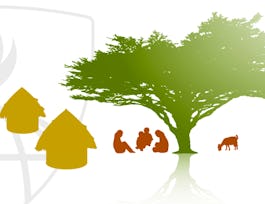Health behavior lies at the core of any successful public health intervention. While we will examine the behavior of individual in depth in this course, we also recognize by way of the Ecological Model that individual behavior is encouraged or constrained by the behavior of families, social groups, communities, organizations and policy makers. We recognize that behavior change is not a simplistic process but requires an understanding of dimensions like frequency, complexity and cultural congruity. Such behavioral analysis is strengthened through the use of a toolkit of theoretical models and practical frameworks. While many of such models and frameworks exist, in this course we will review the Health Belief Model, Social Learning Theory, Theory of Reasoned Action, the Trans-Theoretical Model and the PRECEDE Framework. After building your behavioral analysis toolkit with these examples, you will see that actual behavior change program planning uses a combination of ideas and variables from different models, theories and frameworks. Ultimately we aim to encourage course participants to apply the idea that successful programs are theory based as they go about involving people in improving their health.


Diagnosing Health Behaviors for Global Health Programs
This course is part of Foundations of Global Health Specialization
Taught in English
Some content may not be translated

Instructor: William Brieger, DrPH
4,999 already enrolled
Included with 
Course
(89 reviews)
Details to know

Add to your LinkedIn profile
5 quizzes
Course
(89 reviews)
See how employees at top companies are mastering in-demand skills

Build your subject-matter expertise
- Learn new concepts from industry experts
- Gain a foundational understanding of a subject or tool
- Develop job-relevant skills with hands-on projects
- Earn a shareable career certificate


Earn a career certificate
Add this credential to your LinkedIn profile, resume, or CV
Share it on social media and in your performance review

There are 5 modules in this course
We start the course with an introduction to the dimensions of health behavior as well as an outline of what to expect from the rest of the course.
What's included
2 videos4 readings1 quiz1 discussion prompt
We continue with theories and models, understanding human behavior, and understanding perspectives. We'll also examine an example of meanings and interpretations using malaria and river blindness as well as an introduction to force field theory and an explanation of using and making models and theories.
What's included
6 videos1 quiz
In this module you will be introduced to the Health Belief Model as well as the Social Learning Theory, which will allow you to better understand how to complete your Peer Review in this module, as you will be completing one of each with a case study provided.
What's included
5 videos1 quiz1 peer review1 discussion prompt
Here you will be introduced to Process Models and take a look at PRECEDE for the first time.
What's included
3 videos1 reading1 quiz
In this final module, we discuss the PRECEDE Framework as an extension of the previous module.
What's included
3 videos1 reading1 quiz
Instructor

Offered by
Recommended if you're interested in Public Health

Coursera Project Network

Coursera Project Network

Johns Hopkins University

Johns Hopkins University
Why people choose Coursera for their career




Learner reviews
Showing 3 of 89
89 reviews
- 5 stars
82.02%
- 4 stars
12.35%
- 3 stars
2.24%
- 2 stars
0%
- 1 star
3.37%
New to Public Health? Start here.

Open new doors with Coursera Plus
Unlimited access to 7,000+ world-class courses, hands-on projects, and job-ready certificate programs - all included in your subscription
Advance your career with an online degree
Earn a degree from world-class universities - 100% online
Join over 3,400 global companies that choose Coursera for Business
Upskill your employees to excel in the digital economy
Frequently asked questions
Access to lectures and assignments depends on your type of enrollment. If you take a course in audit mode, you will be able to see most course materials for free. To access graded assignments and to earn a Certificate, you will need to purchase the Certificate experience, during or after your audit. If you don't see the audit option:
The course may not offer an audit option. You can try a Free Trial instead, or apply for Financial Aid.
The course may offer 'Full Course, No Certificate' instead. This option lets you see all course materials, submit required assessments, and get a final grade. This also means that you will not be able to purchase a Certificate experience.
When you enroll in the course, you get access to all of the courses in the Specialization, and you earn a certificate when you complete the work. Your electronic Certificate will be added to your Accomplishments page - from there, you can print your Certificate or add it to your LinkedIn profile. If you only want to read and view the course content, you can audit the course for free.
If you subscribed, you get a 7-day free trial during which you can cancel at no penalty. After that, we don’t give refunds, but you can cancel your subscription at any time. See our full refund policy.

